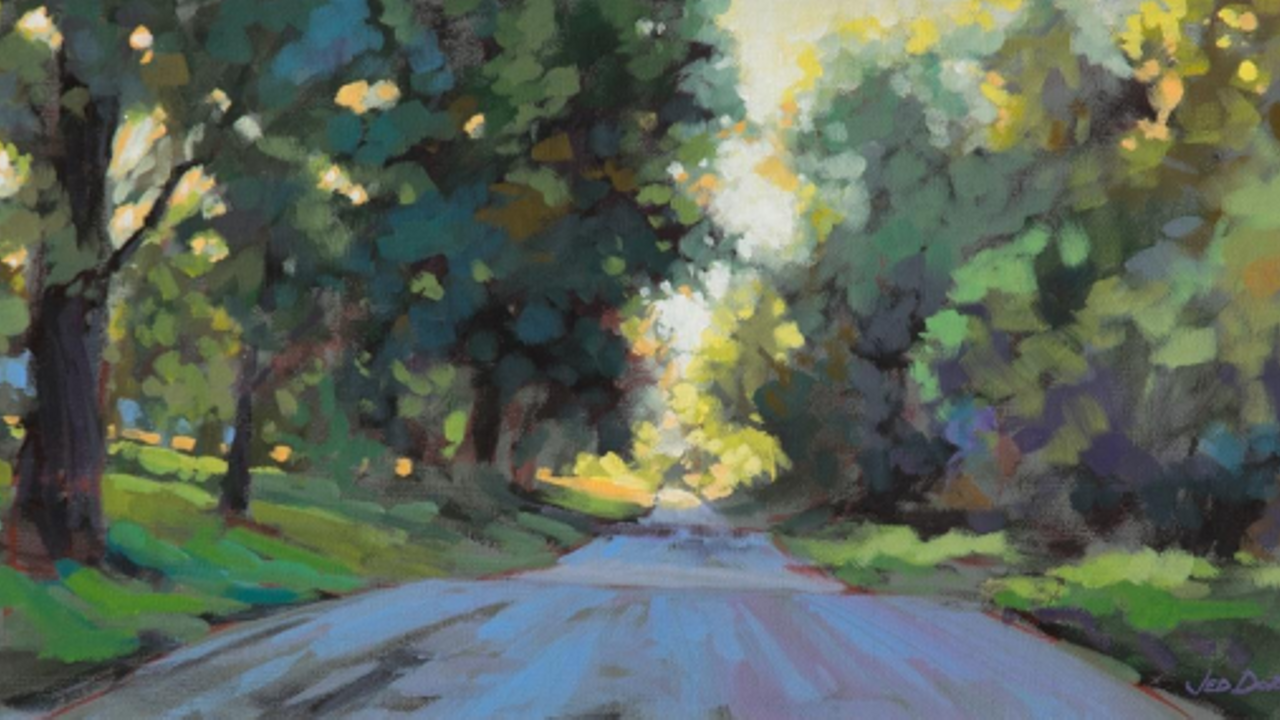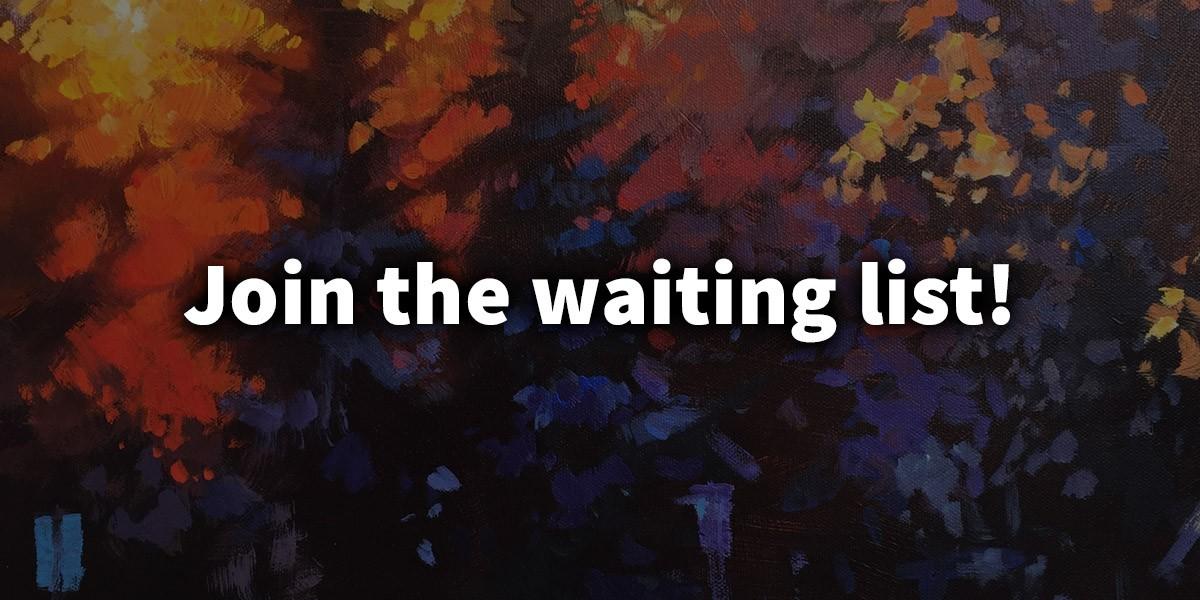Focus on the POSITIVE to Overcome Fear In Painting

“Remember one rule of thumb: The more scared we are of a work or calling, the more sure we can be that we have to do it.” - Steven Pressfield
Humans have a natural tendency to focus on the negative. It's why we consume so much news! We have an easier time remembering the hardships of life than we do the good things. It's important that we don't let this tendency negatively affect us as people and as artists! Let me tell you a story:
Giving Up
Even though we were only about thirty minutes into the painting class I was teaching, she had given up. Her brushes were sitting on her palette, still needing to be washed, but she was done.
“I just don’t feel like painting today. I can’t get this road right, and…” her voice trailed off.
I looked at her painting which was seventy-five percent blocked in with colors to see what I could find that I loved.
“Okay,” I started, “would you mind if I told you some things that I love about your painting?”
A few minutes later, she had picked up her brushes again, and she was painting with renewed vigor. At the end of the class, she said, “Thank you so much for not letting me quit. I had such a good time today.”
Celebrate Progress
I’m not sure what it is, but in my own experience and in the years of teaching others, I’ve seen this common thread throughout. It’s extremely easy for us to get down on ourselves. That’s why it’s so important to focus on the positives in your artistic journey and realize that you’re making progress – even if it seems slow. Each of us is on an individual journey, and I don’t know anyone who has had the short road to success. While the journey is long, there are small successes along the way, and we need to celebrate those.
Feedback From Others
If you’ve ever taken a course where creativity is crucial, you’ve probably, or hopefully, had an instructor who reminded students during group critiques to identify some positives about the person’s work before delivering any negatives. Why is that important? Because when our work is being critiqued, if we first hear what we’ve done well, we’re much more receptive to it than listening to what we can improve upon. The act of creativity can feel so scary, and we tend toward insecurity, so having other people affirm what we’ve done well can help us see some great things we might not have noticed.
Personal Feedback
Remember, a critique should never, ever only include negative feedback. But what about when we are alone? This is where it can get trickier, and we need to use this same technique in our inner dialogue. This can be a battle because our minds seem hardwired for negativity and self-criticism. We need to train ourselves to first see what’s working well. We must be kind and constructive toward ourselves the same way we would toward a peer.
What do You Love?
When I’m teaching, I always ask my students, “What do you love about your painting?” I don’t let anyone get by without telling me at least one thing. And this is important for us to do when we are by ourselves. What are you happy with? Does your eye keep going to the juxtaposition of orange against red? Is there a certain hue of blue that you discovered you love? Did you try a new technique like a vibrant underpainting that is adding an extra glow to your piece?
It doesn’t matter what it is, always look to the positives first. With each session or each piece, there will always be something good about what you’ve produced. The good might be the joyful experience of working with paint and learning from a new instructor or from experimenting on your own. Once you’ve established this baseline for success, you can allow yourself to constructively assess what you can improve.
Voice Your Strengths
Another important aspect of staying positive is voicing our strengths. When someone asks about your painting or your painting practice, don’t immediately begin telling them how terrible it is or that you aren’t a very good painter. Start out positive. Point out what you’re proud of or what you’ve been working to improve upon.
One of my best artist friends, Justin Vining, is excellent at this. He is upbeat and positive, and I’ve heard his positivity come across countless times when he is talking to admirers of his work. It’s probably part of the reason he sells hundreds of paintings each year. Collectors are drawn to his paintings and his passion. He loves being an artist, and his enthusiasm carries over into his conversations and allows him to freely say what he loves about his own paintings. It’s a quality I admire.
Share Your Joy
The truth is, we must be mindful to speak of our work in the way we’d like others to view it. If you’ve been working on composition, point out what’s working in your painting and what you did to create that success. Maybe you’ve been experimenting with texture, painterly strokes, or a new medium; perhaps you’ve created your first plein air painting. Talk about what that experience was like and what you enjoyed about it. Tell people what you love about your work and watch them begin to appreciate your strengths.
Keep Watch Over Your Thoughts
Remember that art by design is an extension of ourselves and our world, and you have something unique and good to offer. To do your best, you will need to keep watch over your thoughts because staying positive takes practice. But you can do it, and when you do, everything else will begin to fall into place. You will be able to take one courageous step after another on your artistic journey.
"Self-doubt is utterly crippling to painters. Nothing will mess up our efforts more effectively than believing that we lack 'what it takes.' Well, no one knows what it takes, so how could anyone possibly know if they don't have it? They can't and you can't. Therefore, always give yourself the benefit of the doubt.” - Richard Schmid
Stay connected with news and updates!
Join our mailing list to receive the latest news and updates from our team. You're information will not be shared.

